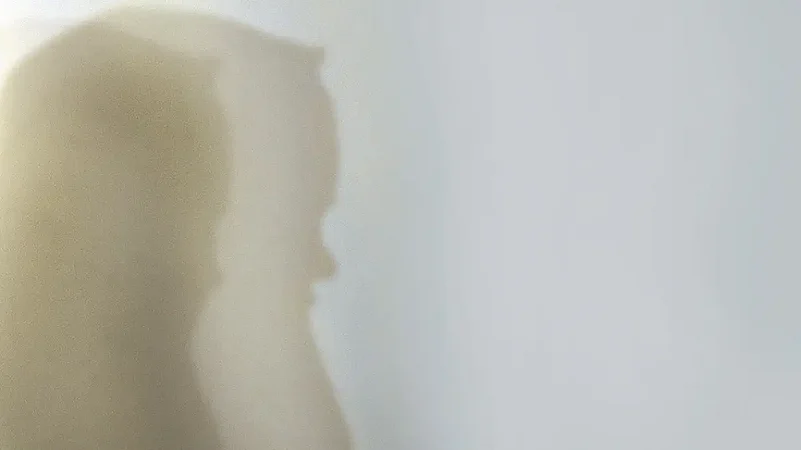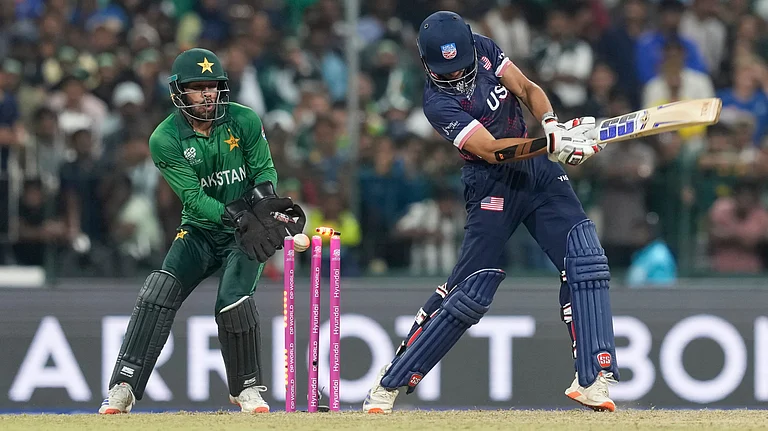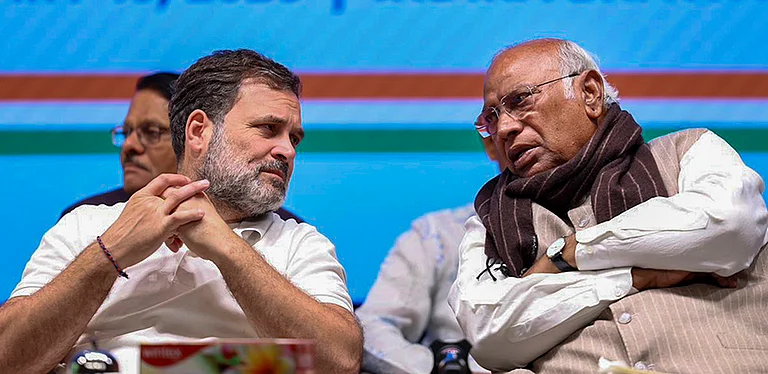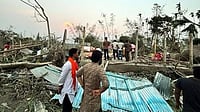India just celebrated its 75th Independence Day, and on the same day, the proud Indian people celebrated another death—of the blindfolded woman standing eternally on behalf of truth and justice. Does she know Bilkis Yakub Rasool, who was killed and is being killed every day since that horrendous night she was brutally gang raped and her three-year-old child was smashed to death with a stone by a mob that claims to be the champion crusaders of one of the world’s oldest religions? The blindfolded woman is deaf too. Her scales of justice took 17 years to hear the screaming, groaning and sobbing, and then complete dead silence of that night.
When Bilkis’s silence was finally worded, in every hearing date, she would have thought of finding closure for that ghastly night. But the nation had another plan in store.
Bilkis lives in a land where people like Yati Narasinghanand live with absolute impunity even after issuing calls for genocide. After 20 years, Bilkis was again killed, when the rapists were released by the state of Gujarat. And they were garlanded and celebrated. This is not an isolated case.
This is one point in a chain of events that is leading India to a point of no return. It’s giving a clear message to the minorities—religious and gender—that they are second-class citizens. Some lawyers are apprehensive of blatant misuse of power.
When the rapists were garlanded and welcomed with ladoos, the blindfolded woman was surely killed one more time. The ordeal of shame doesn’t end here. A BJP MLA jumps up in favour of the rapists, justifying their release by saying they are from good Brahmins families.
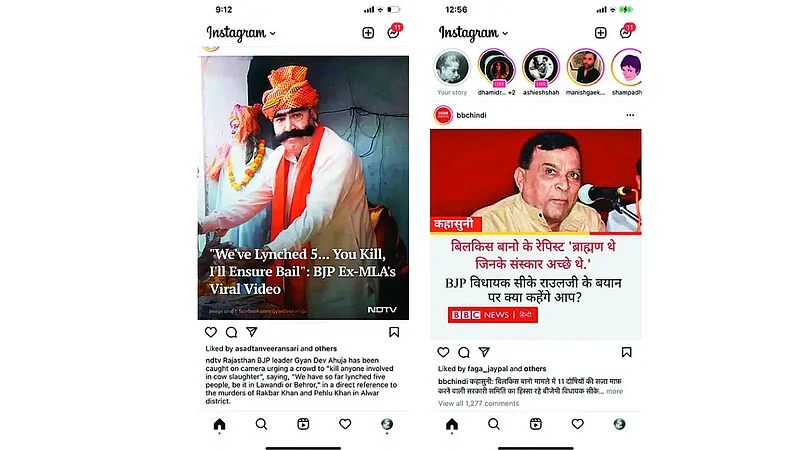
The journey of the blindfolded woman is a ghost walk. Her life depends on the power dynamics of the ruler. The incendiary speech before the 2020 Delhi riots goes unnoticed, but the peaceful call for a chakka jam by Sharjeel Imam becomes hate speech. Umar Khalid, a champion of peace and constitutionality, remains behind bars. A child is killed—his offence is that he drank water from a pitcher reserved for an upper-caste teacher. The blindfolded woman is more blind in some particular cases. Does she know about Nazia’s search for her husband during the Delhi riots? Does she even know Gulshan and her mad search for the dead body of her father, which ended when she found the taang (leg) of her father while rummaging through every hospital in Delhi? Has she heard the spine-chilling anecdote of the doctor who was in charge of Al Hind hospital during the Delhi riots? Doesn’t the blindfolded woman live in Delhi, the heart of politics? If she can’t even hear the voice of the Centre, Godhra and Nellie are bound to be distant lands.
Dear Blindfolded Woman, your hands are not tied. Untie them and see the pain of Bilkis, Nazia, Gulshan and Zakia Jafri, to name a few. Rape is rape, the rape of a woman from a minority community is no less painful than that of Nirbhaya. Those who are in charge of showing light to the blindfolded woman are indulging in partisan politics. So dear blindfolded woman, I pity you. If you want to symbolise justice, please use your hands and remove your blindfold. Look around, many women from Kashmir to Manipur are in pain, and with them, Mother India is bleeding too.
We will mock you, remind you of every face of suffering and pain till you open your eyes and deliver justice. Come on, wake up!
The Death of the Blindfolded Woman
The blindfolded lady is long dead.
Her eyes were gouged out
Her belly was ploughed
the foetus was poked out
and the nerves of her throats
have been pulled down
to snap out from the vocal cord.
The lady who used to stand still
is not there anymore
eleven rapists are roaming free
She has taken shelter in history.
She has taken leave forever.
tapped all files closed.
her sons are distributing ladoos.
The abled sons celebrate
their mother’s death.
She is missing
But who cares!
She might have been thrown
into a room before they torch
the room with fire.
Bilkis,
Justice does not only end here
Justice is long dead and buried.
2
Nazia
Nazia,
Don’t lose hope my child,
We are the most persevering people in history indeed.
Nazia,
over the years we have learnt to search for our beloved
you have to learn the art of searching
from the police station to the morgue to graveyards
again to the babus and their babus.
Nobody comes back Nazia
they have subtle hands in cleansing.
They are the power.
Nazia,
You must understand
our search is eternal
in the gutters, in the garbage, in the drainage
in the list of the dead people,
in the land of our celebrated homeland.
Nazia,
We search for our sons, our sisters, our mothers
our soul, our esteem.
Every day we search for the news
Here is a pond, a hand has popped up,
there is a decomposed body
two miles away a ravaged breast and severed penis
are floating
and most horrible
a girl who went missing for three days
has been found alive!
We rush to stamp
which body is whose!
some then hire trucks to carry limbs
And
The girl’s mother has the heaviest carcass
She has to walk alone with
the heaviest “zinda laash”.
Nazia,
this is our journey,
a never-ending journey
with no full stop.
only sentences change from time to time
when a new chapter begins.
Nazia,
Don’t lose hope, my sister.
Do learn the art of searching.
(Inspired by the story of Nazia, a 30-year-old woman who was searching for her husband, lost on February 24, 2020)
3
Justice
Basharat,
your nights were/are curfewed.
here THEY have mortgaged our conscience,
Death is the only ransom!
We were happily playing flute
seeing your silence!
here we are now
Breathing is even a crime!
We never even sighed
seeing your land turning into a graveyard!
here we are
busy making biers.
When they came for you
We were busy building our houses!
here we are Basharat
sitting alone with the dead bodies of our men.
We walk indifferently
on the ashes of your existence.
here we are now
standing with not even a full body
only a taang (leg) in our hand!
Now you and I
are same Basharat,
with more of our beloved in kabristan
than in our arms.
(Basharat is about Basharat Peer, the author of the book Curfewed Night)
(This appeared in the print edition as "Wake Up, Blindfolded Woman")
(Views expressed are personal)
Moumita Alam is a poet from a remote corner of west bengal who writes about marginalised people






